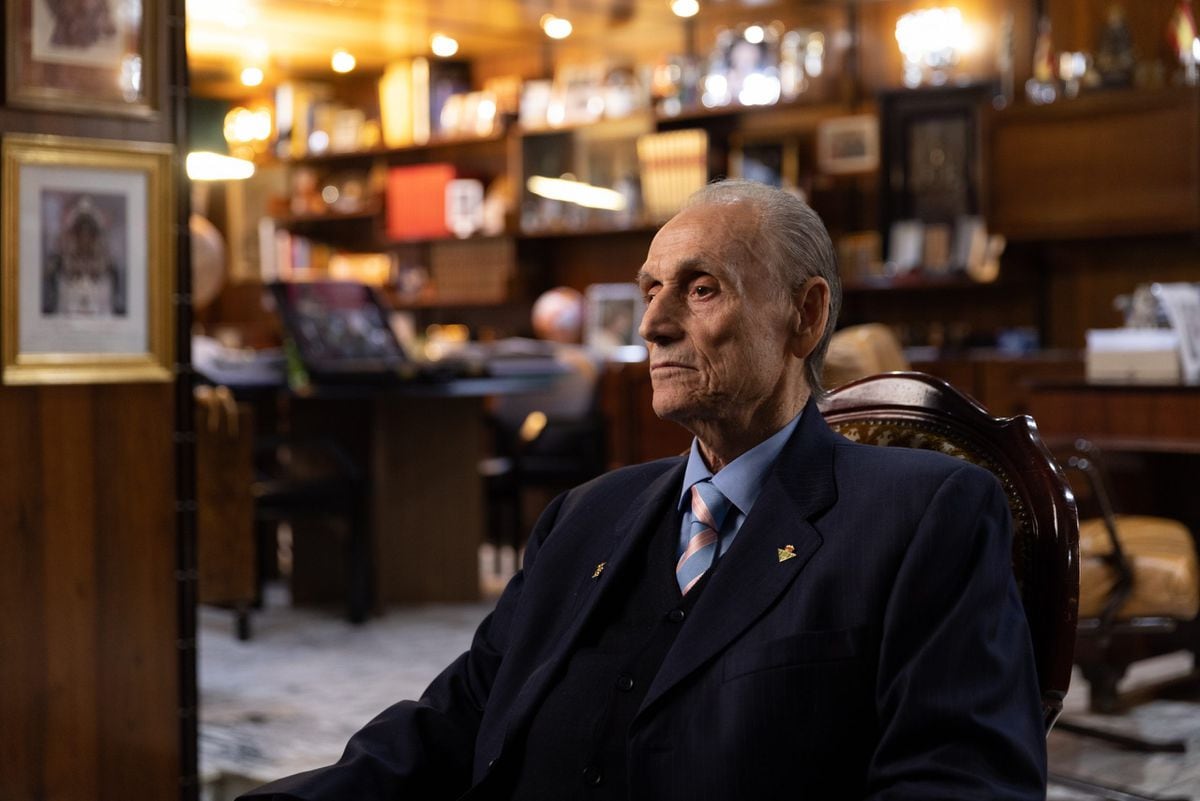SANTANDER, Oct. 6 (EUROPA PRESS) –
The president of the Spanish Society of Immunology and head of the Immunology Service of the Marqués de Valdecilla University Hospital in Santander, Marcos López Hoyos, assured that “the scientific community in general is clear that zoonoses, such as Covid-19, they are disappearing to happen again and in a not too long time ”.
In an interview with the College of Physicians collected by Europa Press, López Hoyos explained that since the beginning of the 21st century there have been several zoonoses, Covid-19 being the one that “had the greatest impact”, for which it has stressed that we must be “attentive” to the control of contact with animals and the possible transmission from animals to humans and its extension in a globalized world.
Regarding the current situation of the pandemic, the also scientific director of the Valdecilla Health Research Institute (IDIVAL) believes that Covid-19 “has come to stay”, although “fortunately” the Cantabrian and Spanish population has a higher vaccination rate 92%, which “guarantees immune protection against a possible coronavirus disease”.
“It doesn’t mean we don’t get infected again. The variants and underlines, now of Omicron, largely escape the neutralization of antibodies generated by previous vaccines and infections. So infection is not prevented, but yes, severe disease. that it generated when we were not immunized, “explained López Hoyos, who warned that the prediction is that the clinical incidence will not be as high as in previous waves despite the fact that” a new variant is very likely to appear “because “The virus changes constantly”.
The president of the immunologists considers it “convenient” to keep the mask in the transmission seasons of these viruses such as this autumn and winter; and on the flu, he bets that it will have “more impact than in previous years” because not wearing a mask “will facilitate the infection”.
He also stressed that it is “essential” that the population at risk be vaccinated to avoid infection or at least the complications it generates due to underlying disease decompensation in the frail population.
“What is clear is that there is no reason to think, as some forums say, that this flu will come with more potency because we haven’t had it for almost two years”, since, according to what it says, the flu virus it changes much more than that of Covid-19, and that is why we talk about strains and not variants. “The immunity generated one year does not normally protect against the strain that circulates the following year,” he adds.
And given the increase in cases of monkeypox in the country, López Hoyos assured that it has been and is a problem, but stressed that “in no case does it have the possibility of expansion like Covid-19, because the transmission mechanism is “much tighter” through fluids.
“From the first moment we learned how it manifested, the disease was known because there had been sporadic cases for decades and we knew we could control it with isolation and circulating vaccination with human smallpox vaccine,” he said, at the same time he reminded that the outbreak and expansion were motivated by human behavior and globalization.
EVOLUTION OF IMMUNOLOGY
Asked whether the pandemic has caused changes in the work of immunology, he pointed out that this area of medicine has been revealed to society at large with the Covid-19 pandemic, explaining the defensive role of the immune system and the generation of immunity. protected from disease with vaccines.
“However, immunology is the basis of every human pathology, it is probably the most transversal science in medicine. In other words, it is the best example of globalization in medicine, almost all diseases present with inflammation, and the inflammation is the immune response itself, ”he stressed.
Furthermore, he cited various fields in which immunologists have been working “for some time”, such as the study of autoimmune diseases in collaboration with rheumatologists, nephrologists, pulmonologists or internists; or even cancer immunotherapy and cell therapies, such as the use of antiviral lymphocytes or CAR therapies. “The role of the immunologist is always essential in collaboration with other specialties and sciences”, she remarked.
As for the work the Valdecilla Immunology Service is currently focusing on, its manager points out that he has been quite focused over the past two and a half years on studying the immune response in SARS-CoV-2 (Covid – 19) along with other hospital colleagues.
“We conducted our studies to analyze the components of the immune response that were induced in the blood of infected subjects and their relationship with the Covid clinic. We subsequently transferred this knowledge to the induced response after vaccination, the components of the immune response and also its duration
to determine the attitudes to follow. We did this with our Public Health colleagues in nursing homes and we saw that there was a greater response to the vaccine than initially thought, “she assured.
Furthermore, he cited another “multiplicity of studies” on aspects related to collaboration with IDIVAL groups such as vitamin D and Covid, climate or epidemiology; as well as the collaboration with Spanish and international multicentre groups, of which “various technological innovations” are distinguished in the development of a cytometric method to measure antibodies against coronavirus or a rapid and scalable quantitative PCR method to determine cellular immune function in Covid, which is a goal pursued by immunologists since the start of the pandemic and which can now be applied.
“We also determined in another study, early in vaccination, how the second dose did not induce a major immune response after overcoming a previous Covid infection,” he said before indicating that for this type of immunity study protective and lasting in Covid, funding was obtained from the Carlos III Health Institute (ISCIII) to study, with volunteers from Cantabria Cohort, how the population responded to various immunization events.
Finally, López Hoyos said that, “now that it seems that the pandemic is more controlled”, studies on transplants and on autoimmune and immune-mediated diseases are resuming.


